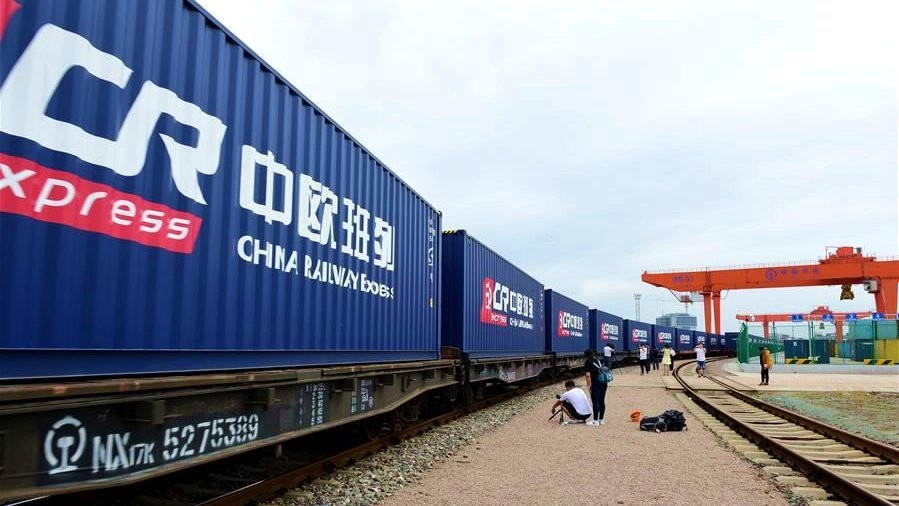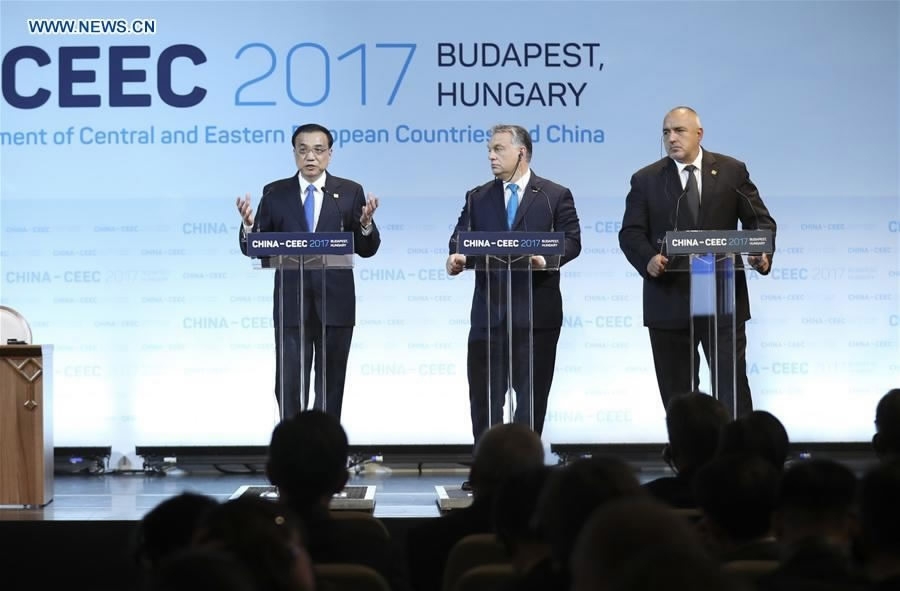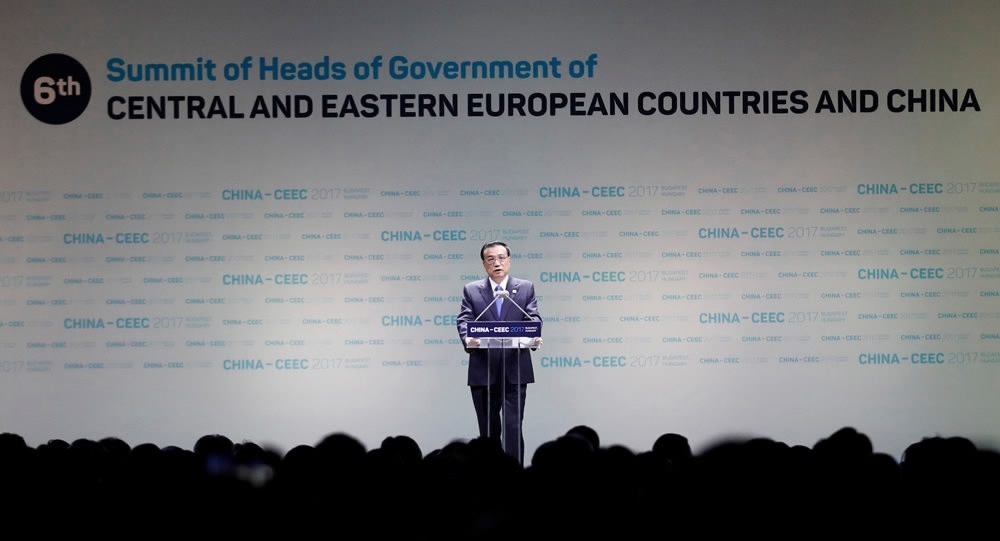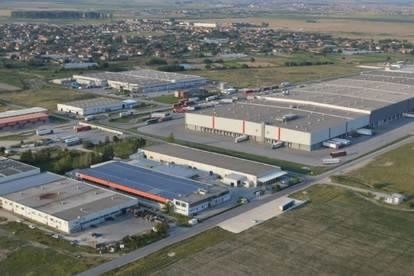
Opinions
16:01, 01-Dec-2017
Opinion: Don't blame China for dividing Europe
Guest commentary by Li Yong

The sixth meeting of heads of government of China and the 16 Central and Eastern Europe countries (CEE 16+1) surpassed the five previous meetings in terms of building stronger cooperation between the countries involved. It also resulted in the establishment of the China-CEEC inter-bank consortium and the completion of the second phase of the China-CEEC Cooperation Fund, which will provide a combined funding of up to 3.4 billion US dollars for development projects in CEE countries.
To simply sum it up: It was a success for China and a success for the European countries.

Chinese Premier Li Keqiang (L) meets the press with Hungarian Prime Minister Viktor Orban (C) and Bulgarian Prime Minister Boyko Borisov (R) after the sixth meeting of heads of government of China and 16 Central and Eastern European countries in Budapest, November 27, 2017. /Xinhua Photo
Chinese Premier Li Keqiang (L) meets the press with Hungarian Prime Minister Viktor Orban (C) and Bulgarian Prime Minister Boyko Borisov (R) after the sixth meeting of heads of government of China and 16 Central and Eastern European countries in Budapest, November 27, 2017. /Xinhua Photo
However, the 16+1 cooperation has resulted in bitterness and anxiety in Brussels. Some politicians in Europe see the 16+1 cooperation as a platform undermining the EU's unity and cohesion. German Foreign Minister Sigmar Gabriel’s recent speech in Paris has typically reflected the extreme sentiment. He said when addressing a diplomat gathering in August, "If we do not succeed for example in developing a single strategy towards China, then China will succeed in dividing Europe". This statement came at a time when Europe finds itself in deep trouble, such as Brexit, rising populism, the migration crisis and the recent crisis in Catalonia. Such statement represented a Cold War mentality embedded with hostility toward the goodwill of China’s engagement in the region, and once again politicized the 16+1 development initiative.
In both of his speeches in Budapest, Chinese Premier Li Keqiang made it clear that the "16+1" cooperation has been an important component of and a beneficial complement to the overall China-Europe relationship. The keyword is unmistakably "complement".
It may be worthwhile quoting Premier Li Keqiang’s statement here: "China firmly supports the European integration process, and respects the European countries' choices of their development paths. As an incubator for trans-regional practical cooperation, '16+1' cooperation is an important component of and a beneficial complement to the China-Europe relationship, and will help promote the European integration process and make the development of China-Europe relations more even. China has all along pursued its cooperation with CEE countries in the broader context of China-Europe relations and under the framework of relevant EU laws and regulations. We welcome the participation of countries outside this region in tripartite cooperation under '16+1' framework to achieve more win-win and all-win results”.
He also welcomed the attendance of the EU, Austria, Switzerland, Greece, Belarus and the European Bank for Reconstruction and Development (EBRD) in the meeting as observers.

Chinese Premier Li Keqiang addresses the sixth China-CEEC summit in Budapest, Hungary, November 27, 2017. /Reuters Photo
Chinese Premier Li Keqiang addresses the sixth China-CEEC summit in Budapest, Hungary, November 27, 2017. /Reuters Photo
In the "Budapest Guidelines for Cooperation between China and Central and Eastern European Countries”, all parties continued to reaffirm the positioning of the "16+1" cooperation as an important part of the cooperation between China and Europe as a whole. The Chinese side reiterated the following key points in the guidelines: a) China attaches great importance to China-EU comprehensive strategic partnership; b) China supports the road of integration chosen by EU members in an independent manner; c) China wishes to see a united, stable and prosperous Europe, and d) China will promote China-EU partnership of peace, growth, reform and civilization.
In the aforesaid guidelines, there is also a clear message about the relationship between the "16+1" endeavor and the EU: "EU member states and candidate countries within the 16 CEECs are committed to the advancement of EU-China Comprehensive Strategic Partnership and EU-China Agenda 2020 , including actively promoting practical cooperation in the framework of the EU-China Connectivity Platform, in the Investment Plan for Europe and supporting the conclusion of an ambitious and comprehensive Agreement on Investment between the EU and China".

The first 16+1 e-commerce logistics hub and pavilion for agricultural and other products was inaugurated at Bulgaria's Trakia Economic Zone near Plovdiv on December 1, 2017. /VCG Photo
The first 16+1 e-commerce logistics hub and pavilion for agricultural and other products was inaugurated at Bulgaria's Trakia Economic Zone near Plovdiv on December 1, 2017. /VCG Photo
There is no such thing that China is trying to "wrest influence away from the EU". It will do no good for both China and the EU, as well as CEE countries. This line of thinking is dangerous and will only do harm on the existing relations between China and the EU. As Financial Times reported, China's scope of operations with the CEE countries "has spilled over into overtly political and strategic areas, breeding mistrust among some of the western European powers that dominate the EU's agenda." The 16+1 cooperation will not split Europe, but promote the prosperity of Europe, thereby helping Europe’s integration. What is likely to divide Europe politically and strategically is the mistrust being developed among the European countries all by themselves.
(The author is senior research fellow at China Association of International Trade (CAIT), deputy secretary general and vice chairman at CAIT, co-chairing at the Center for US/Europe Economic and Strategic Studies. He is also an executive councilor at China Society of WTO Studies (CWTO) and a member of the Advisory Committee for Foreign Economic and Trade Policies at CWTO. The author’s opinions are his own and do not necessarily reflect those of CGTN.)

SITEMAP
Copyright © 2018 CGTN. Beijing ICP prepared NO.16065310-3
Copyright © 2018 CGTN. Beijing ICP prepared NO.16065310-3